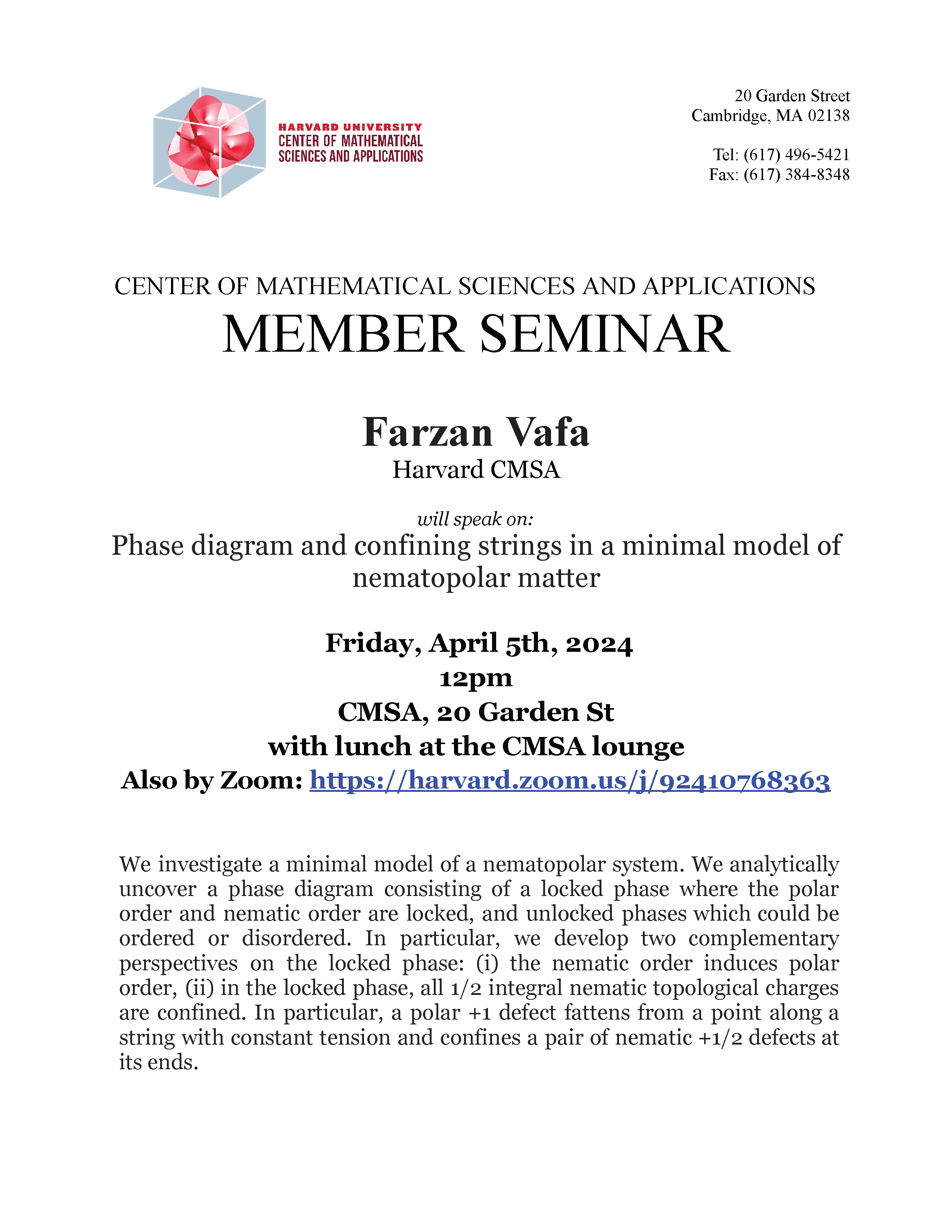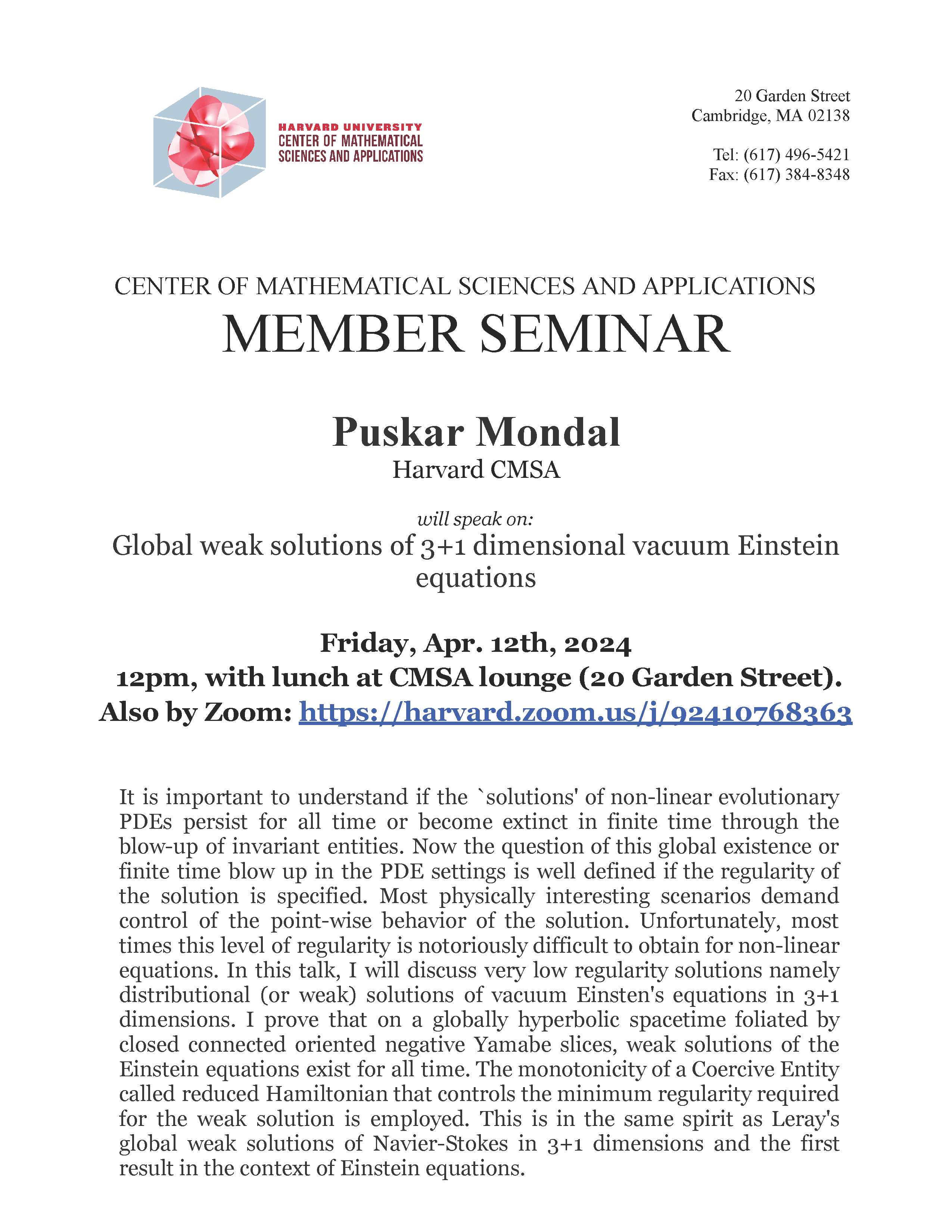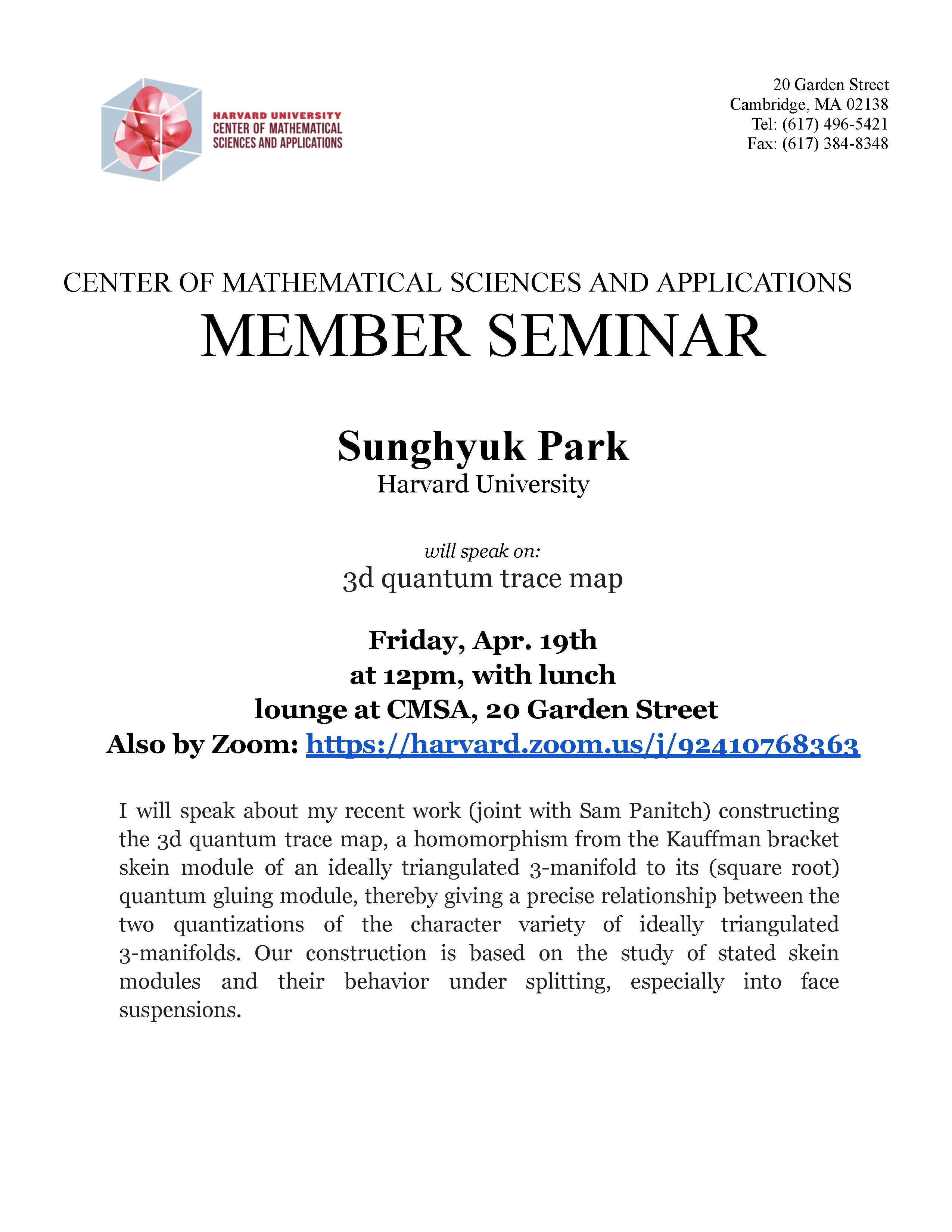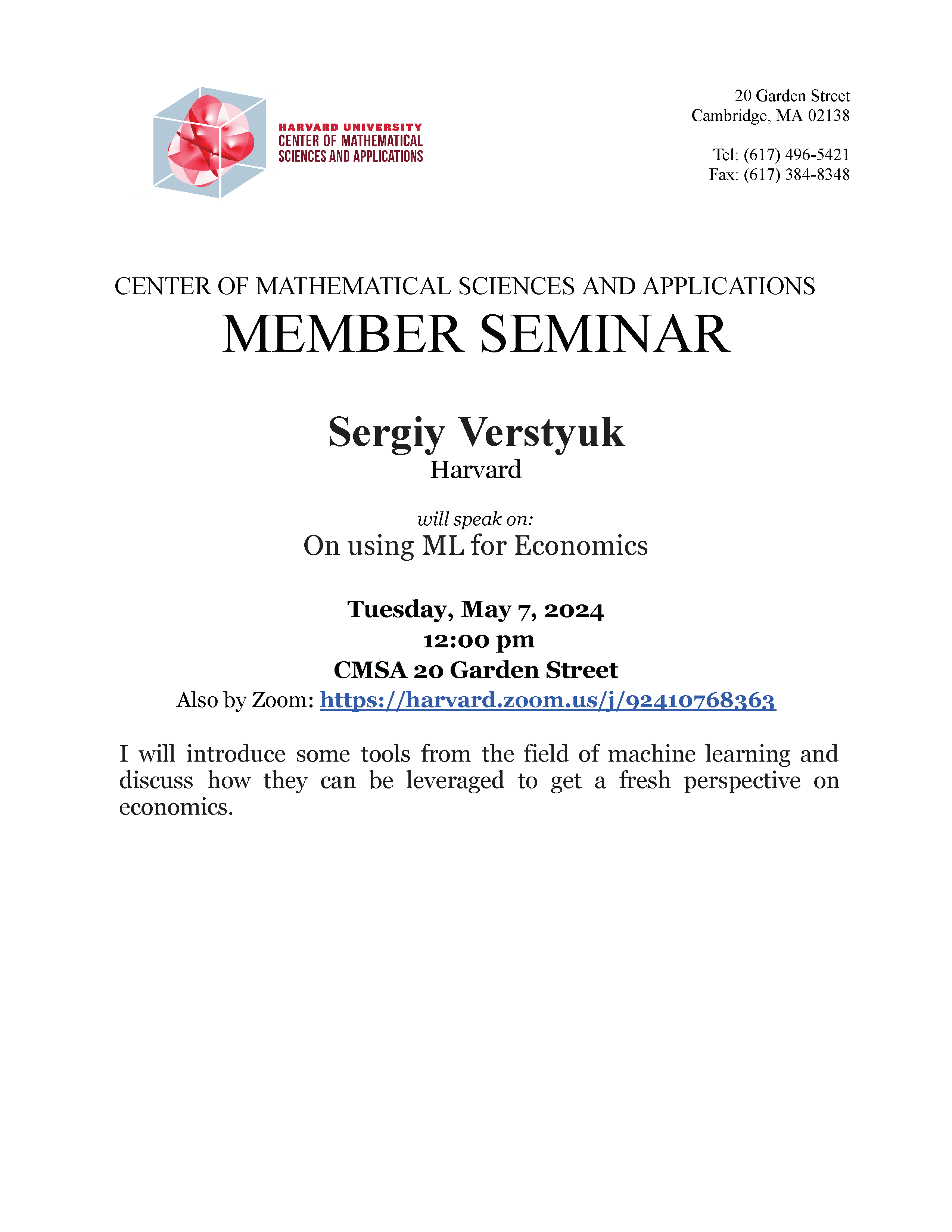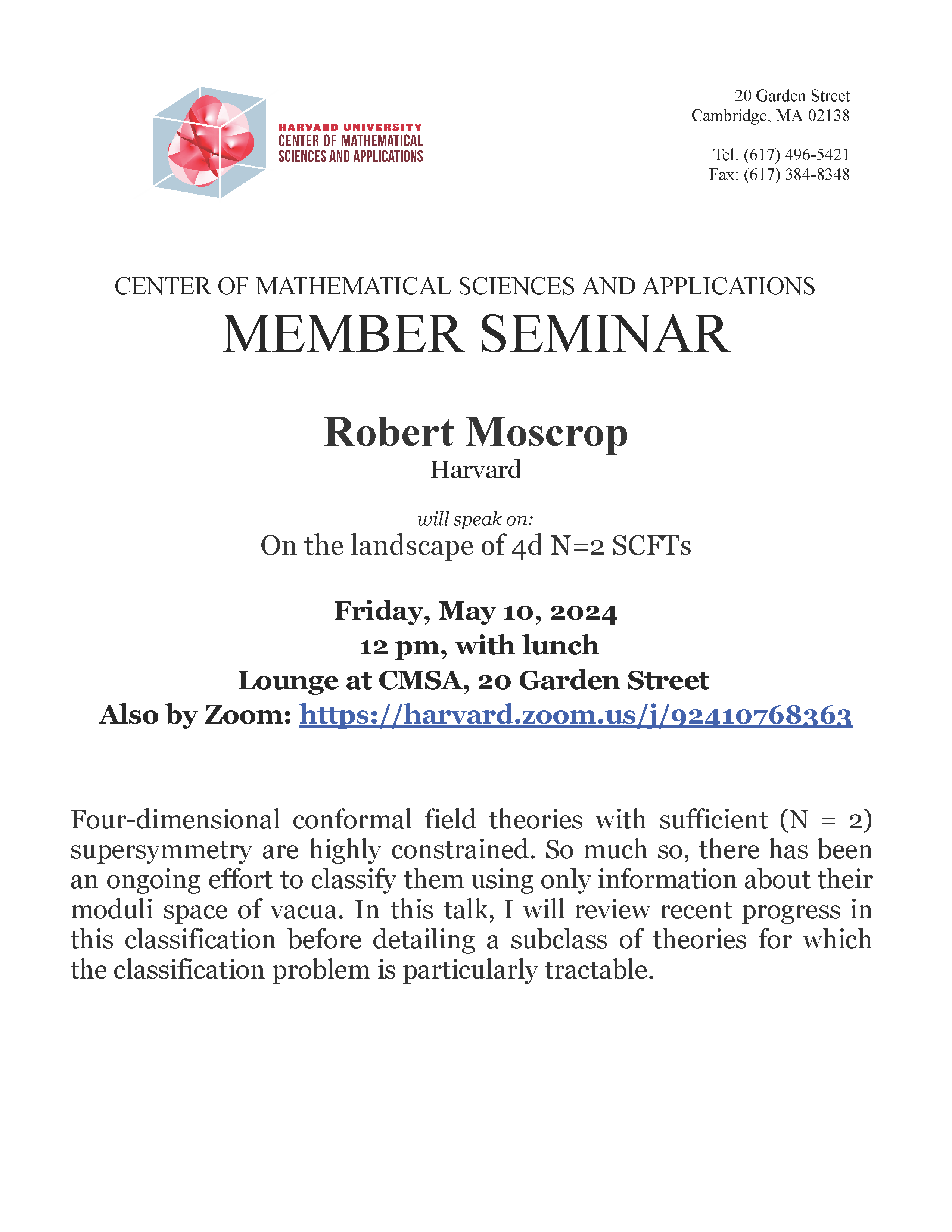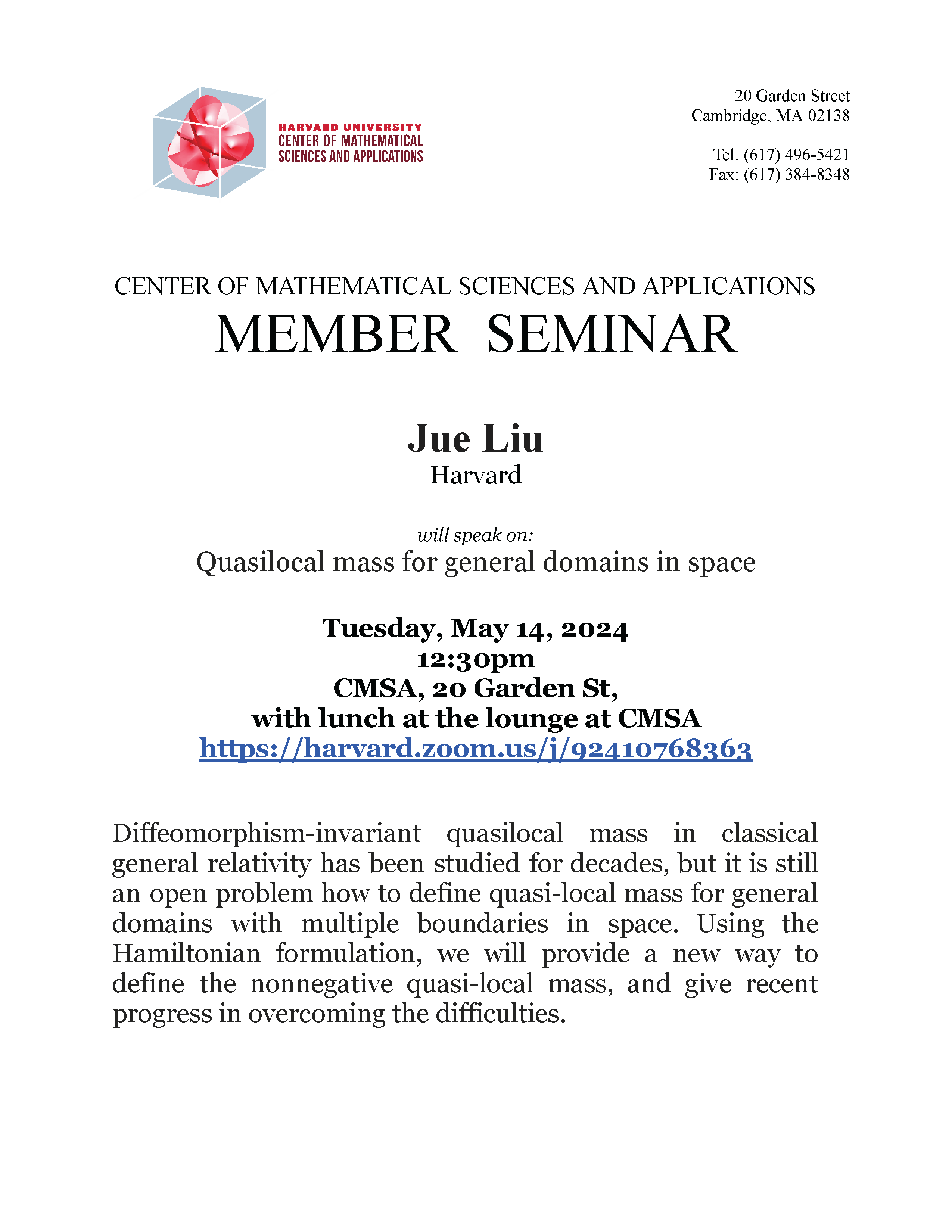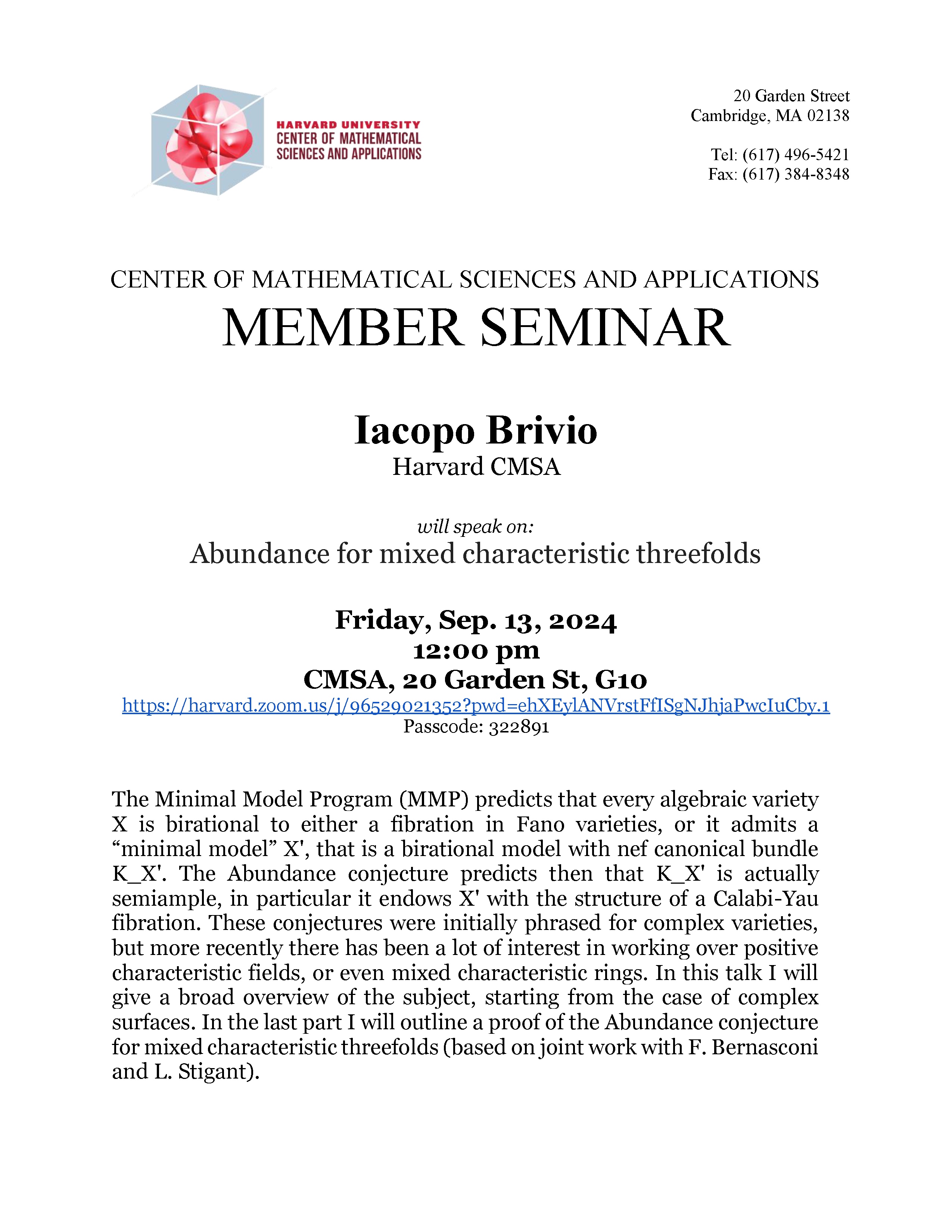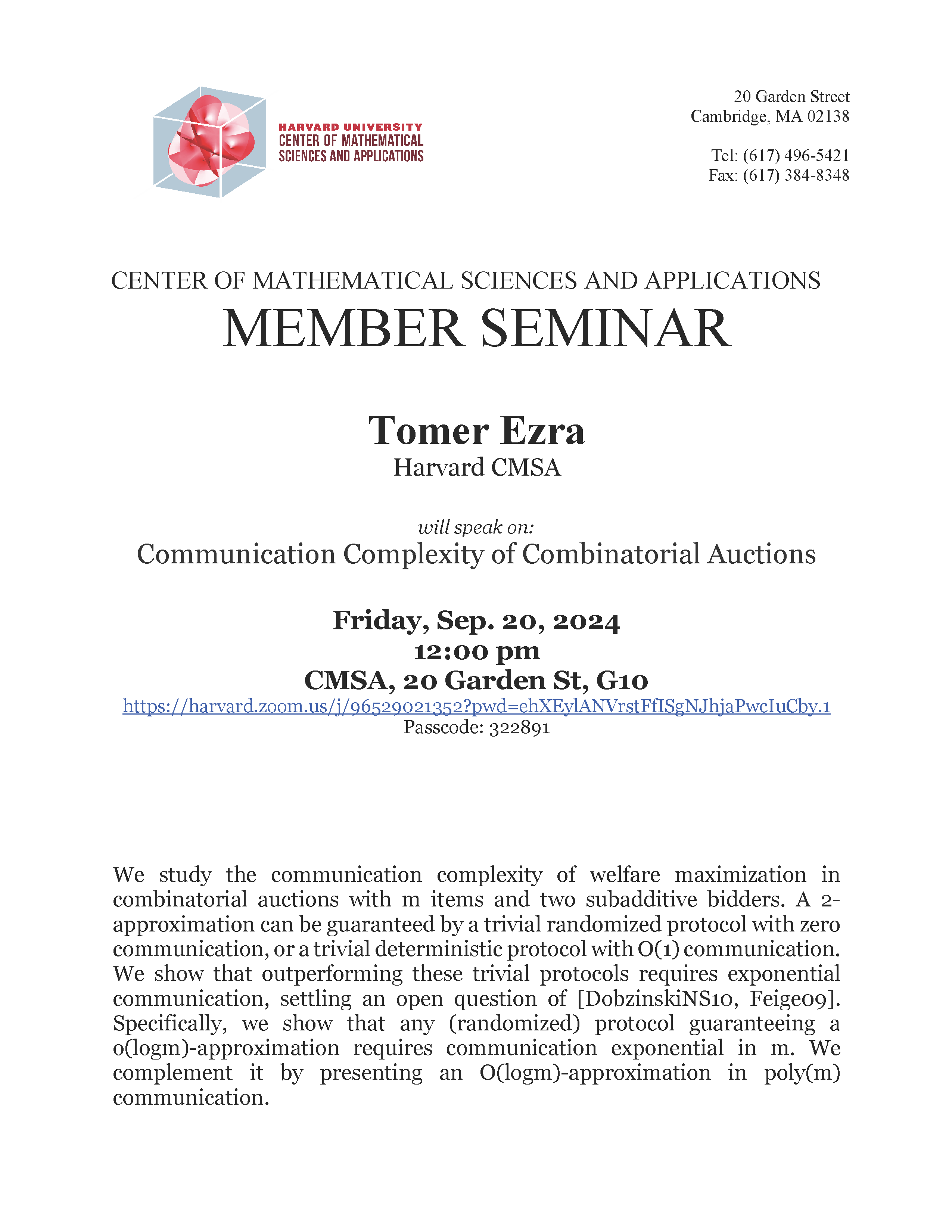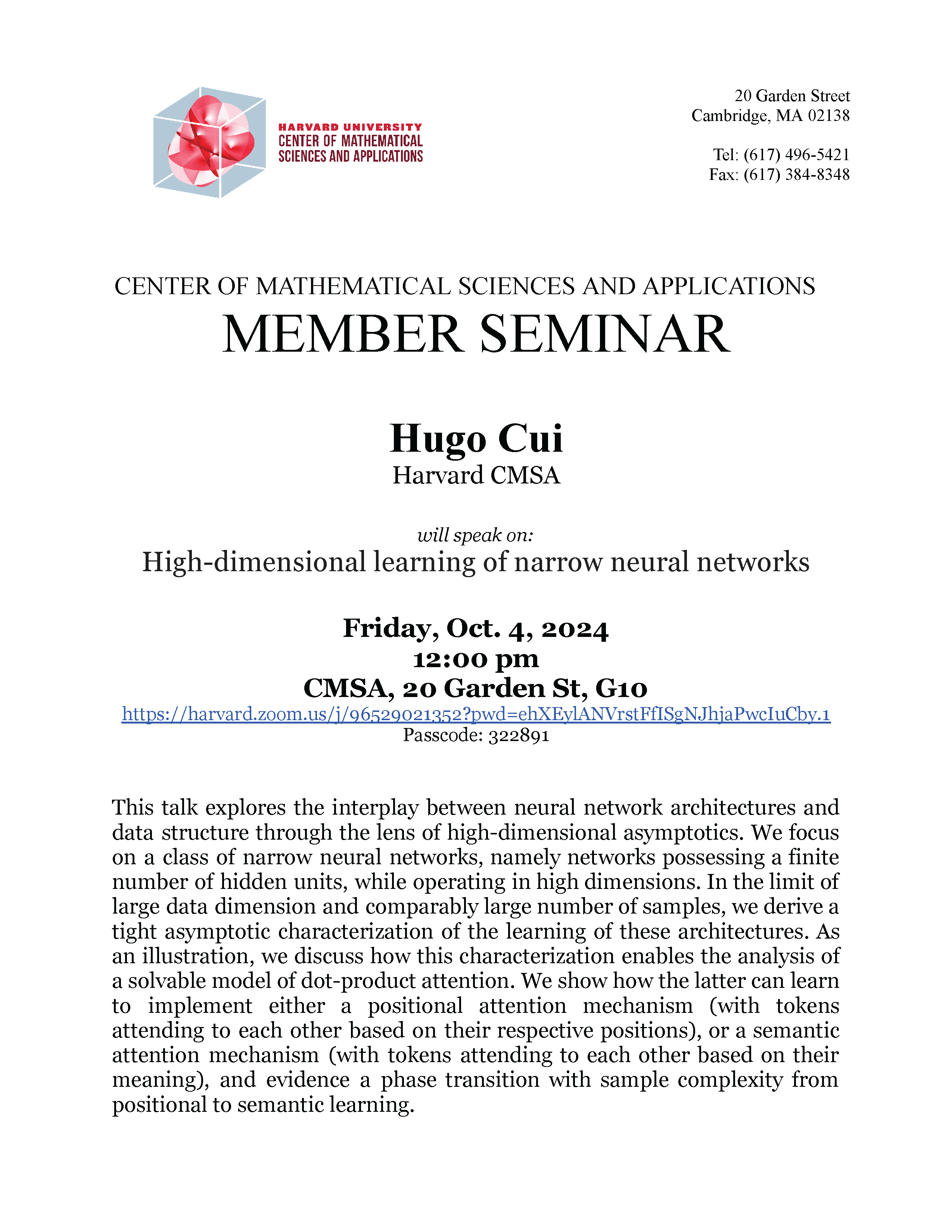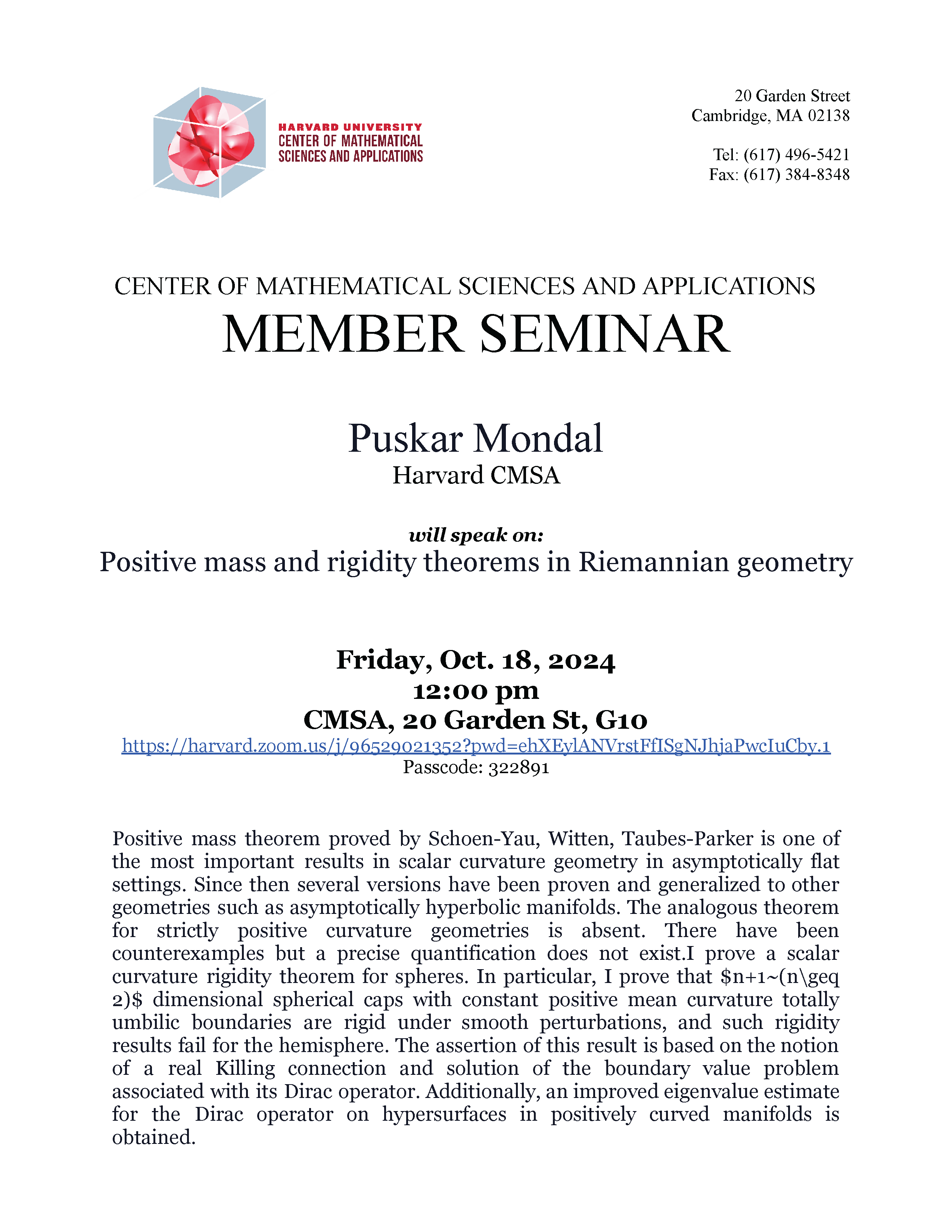Phase diagram and confining strings in a minimal model of nematopolar matter
CMSA Room G10 CMSA, 20 Garden Street, Cambridge, MA, United StatesCMSA Member Seminar Speaker: Farzan Vafa Title: Phase diagram and confining strings in a minimal model of nematopolar matter Abstract: We investigate a minimal model of a nematopolar system. We analytically uncover a phase diagram consisting of a locked phase where the polar order and nematic order are locked, and unlocked phases which could be […]

